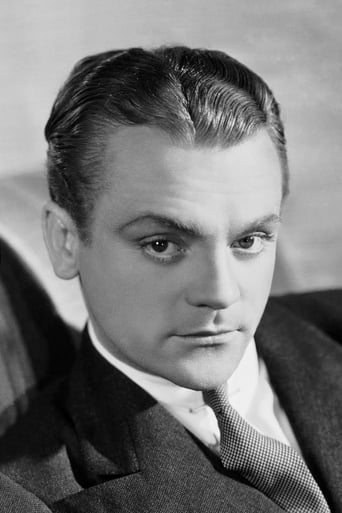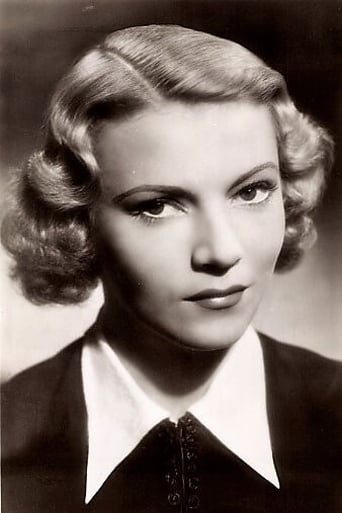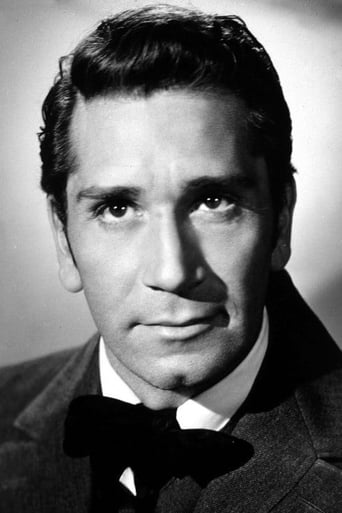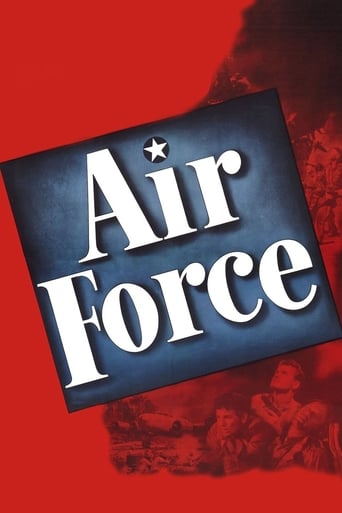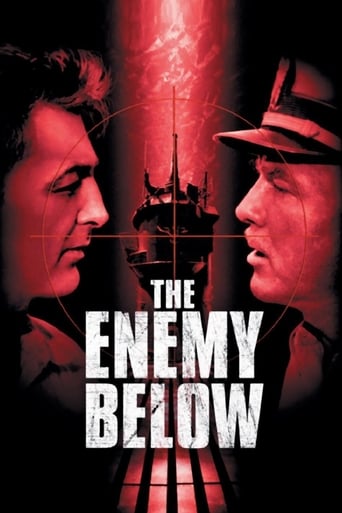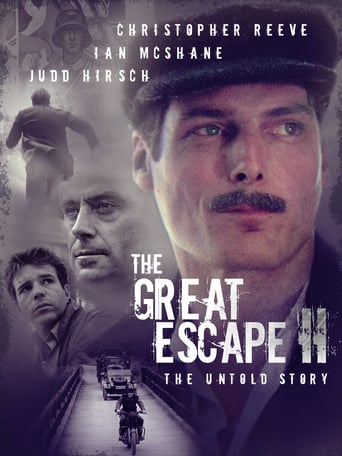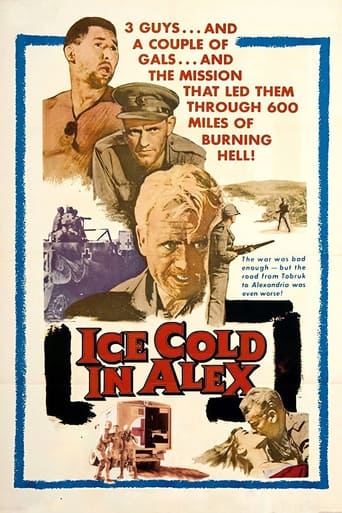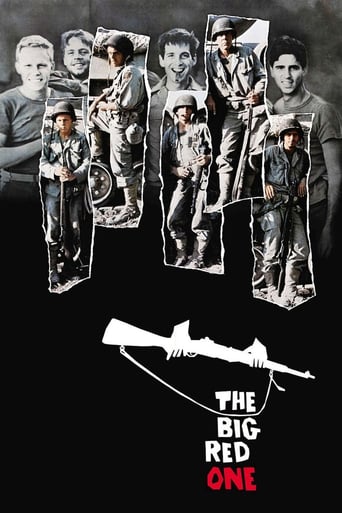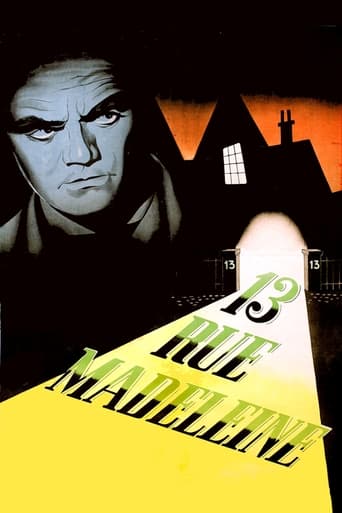
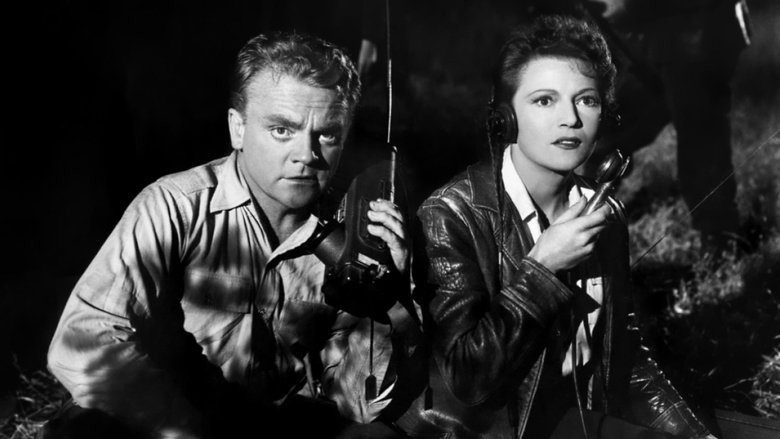
13 Rue Madeleine (1947)
Bob Sharkey, an instructor of would-be spies for the Allied Office of Strategic Services, becomes suspicious of one of the latest batch of students, Bill O'Connell, who is too good at espionage. His boss, Charles Gibson confirms that O'Connell is really a top German agent, but tells Sharkey to pass him, as they intend to feed the mole false information about the impending D-Day invasion.
Watch Trailer
Cast
Similar titles
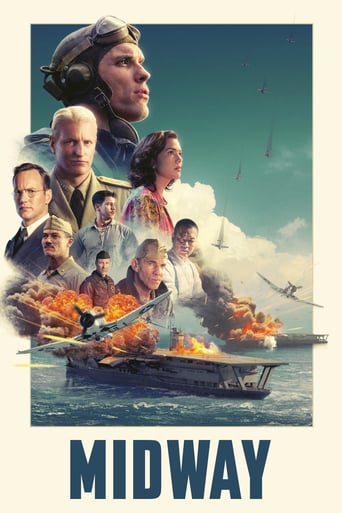
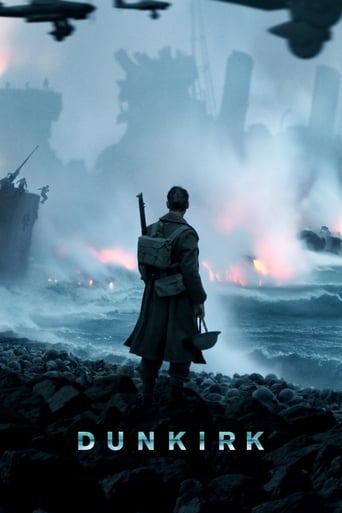
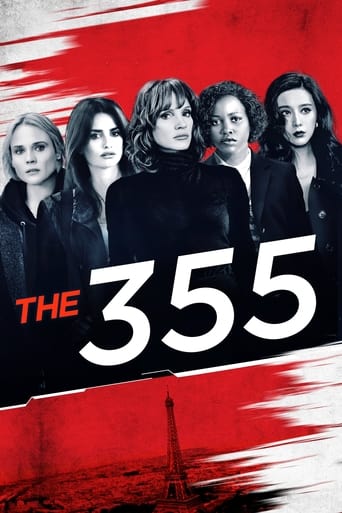
Reviews
Highly Overrated But Still Good
I cannot think of one single thing that I would change about this film. The acting is incomparable, the directing deft, and the writing poignantly brilliant.
It's entirely possible that sending the audience out feeling lousy was intentional
Good films always raise compelling questions, whether the format is fiction or documentary fact.
13 RUE MADELEINE is a good war effort telling of corruption and espionage in Nazi-occupied Holland. It stars former gangster actor James Cagney as a man who is tasked with training some secret service agents to be parachuted into Holland to retrieve a figure crucial to the Allied cause. However, a series of events including betrayal and murder eventually lead to a mission of revenge, one that is fraught with danger.This film was directed by the reliable Henry Hathaway and is a visually impressive movie. One key parachuting sequence is hair-raising stuff but there's plenty of suspense and incident throughout to keep you watching. Cagney is a good lead here and acquits himself well physically in some strong fight sequences. Richard Conte has a memorable supporting role. The abrupt ending is certainly one to be remembered too.
In the final scene I found myself saying out loud James Cagney's above quoted title phrase from "White Heat".Yet again the producers elected for the lowest common denominator of making the actors, whether playing German or French, only speak in English to each other so that largely American audiences could understand the action.Darryl F Zanuck showed the correct method of producing realistic WW11 films with his 1962 film "The Longest Day" when Germans only spoke in German, French only spoke in French to each other but with English sub-titles, thus providing a more realistic and intelligent dialogue.The beginning held my attention but when the action moved to France and even the Resistance and Gestapo spoke in English to each other the film rapidly reduced itself to farce.I can never understand why American film producers insist on an English only script.America with all its immigrants, must surely have had in 1946 representation of both German and French speaking actors in its ranks.Even Tyrone Power made an effort speaking French in "The Razors Edge" and his co star Gene Tierney made herself almost fluent in the language.Another factual error was that the location of the D-day landing on 6/6/44 was only known to a very few of the allied high command.For this reason I could only vote it average at 5/10.
Cagney disappears in a tremendous explosion at the end of this movie, but he was to disintegrate even more gloriously a few years later.That's the sad part. We've grown to like Cagney as the head of the 077 Branch of U.S. Army Intelligence. He trains a new class of students in espionage and dirty tricks and then sends three of them (Frank Lattimore, Annabella, and Richard Conte) overseas on a dual mission. (1) Kidnap the Vichy French rat who has been designing the launching pads for the V-2 rockets. (2) Spread the false information that the Allies plan to land in Holland rather than Normandie. (PS: Kids, I have specified that the information about the landings in Holland was false, but in the interests of elucidation I'm compelled to add that this is World War II we're talking about here and, see, Hitler occupied France and the Allies -- meaning Britain, the U.S., and so forth -- had to keep their true plans secret. And -- and -- well, we won the war.) It turns out that Conte is, lamentably, a German agent, one of the best. He murders Lattimore, which, as far as cinematic history goes, isn't an insufferable loss, and then rejoins the Abwehr, having accomplished his mission, which was to learn all he could about the operations of Army Intelligence.But Lattimore must be replaced if the real two missions of the group are to be successful, and there's only one man who can do it -- Cagney himself. Cagney parachutes into France, kidnaps the Vichy rat and has him sent to England for questioning about the V-2s, and then is himself captured by Conte. Conte wants to know what those two original missions were. (I admit to a little confusion here about exactly who knows exactly what. Mission Number One, the spreading of false information, is dropped almost as soon as it's explained.) Well, Cagney is a tough guy, as we all know, but nobody can stand up to the Gestapo methods of enhanced interrogation. Every man has his breaking point. Before this point is reached, however, the U.S. Air Force bombs the living hell out of Gestapo headquarters and kills everyone in it, Cagney and Conte included.My guess is that a lot of instructive material about the 077 techniques was cut from the final print. We see the students being instructed in martial arts, demolition, radio communications, and so forth, but it would have been rather neat to learn how to burglarize a place.The rest of the film generates a lot of tension, along with scenes of camaraderie near the start. It results in a rather poignant moment aboard the airplane from which Lattimore and Conte will be parachuted into a French field. Conte has posed as a genial American, and Lattimore has formed a bond with him. Just before the mission is launched, Lattimore is by necessity told of Conte's real identity and is ordered to shoot him if he has to. While the two sit across from one another in the plane, waiting for the order to jump, Lattimore's guilt and discomfort can't be masked and Conte, ever on the alert, picks it up. It's a somewhat painful exchange because, after all, who wants to witness the end of a friendship? Maybe some small percentage of that male bonding was real, even for a person like Conte. It certainly seemed so. It's the finest moment in the film for both actors. Conte nevertheless doesn't hesitate to cut Lattimore's static line so that he falls to his death.The movie belongs to a relatively short-lived genre that originated towards the end of the war and lasted a few years. The style resembles a documentary. There is a narrator -- almost always, as here, Reed Hadley of the sonorous baritone. Lots of typed messages. Rows and rows of filing cabinets containing thousands of documents. Hidden identities. Most of them were produced by Louis de Rochemont and directed by Henry Hathaway. For a relatively pure example of the genre, see "The House on 92nd Street." In all of them, there are a number of highly dramatic and suspenseful moments but the mission is always accomplished.
James Cagney stars in "13 Rue Madeleine," a routine WW II spy drama also starring Richard Conte, Annabella, and a several familiar faces in smaller roles: Sam Jaffe, Karl Malden, and E.G. Marshall. Done in semidocumentary style, Cagney plays the head of a U.S. spy cell, but the cell is known to have a Nazi in its midst. He is not eliminated so that he can be fed the wrong date for D-Day. When he kills one of the other spies, Cagney has to go in as a replacement.Despite some nice performances, notably from Cagney and Conte, the film under Henry Hathaway's direction was quite slow; he was lumbered with a script where it was difficult to develop any feelings for most of the characters, as they were underdeveloped. There were some good scenes, particularly the ones with Jaffe's character and the French resistance. Darryl F. Zanuck brought the pretty, petite Annabella over from France to star her in films, unaware that she would fall in love with his top male star, Tyrone Power. When he tried to discourage the relationship by sending her back to France to do some films, she refused to leave her man, thus finishing her as far as Zanuck was concerned. It's a shame because although you can't tell in this movie, Annabella was an excellent actress, as she would prove on the stage. It's fun to see Karl Malden and E.G. Marshall in small parts.The end of the film is powerful, but I prefer "OSS," also a small, semidocumentary film - catch that one if you have a chance.
